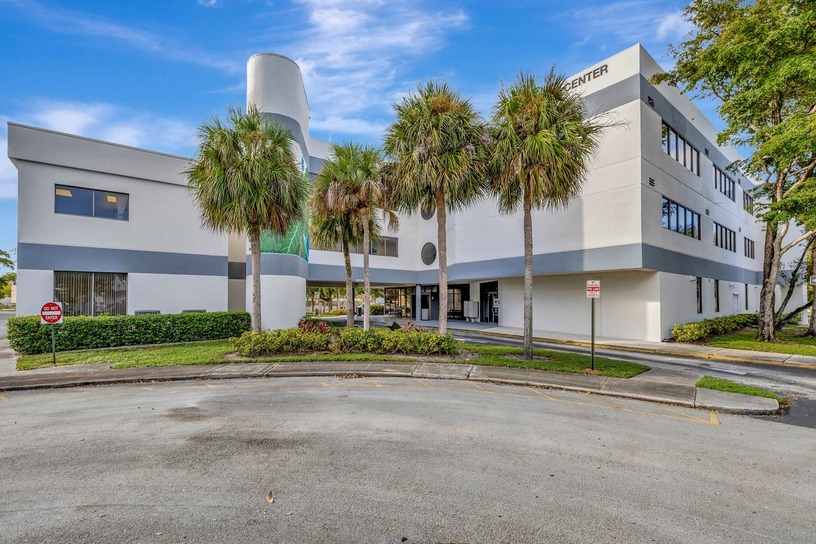At The Sylvia Brafman Mental Health Center, we provide barrier-free quality, integrated treatment that addresses a broad range of mental health conditions and co-occurring disorders. Learn how to pay for residential mental health treatment near Atlanta, Georgia, and the many ways to cover rehab costs, particularly without insurance, on this page. Call 877-958-9212 for immediate assistance.

How to Pay for Inpatient Residential Mental Health Treatment Near Atlanta, Georgia
What is an Inpatient Residential Mental Health Treatment Facility?
An inpatient residential mental health treatment facility provides intensive care for various mental health challenges. These live-in treatment centers offer 24/7 support and structured, inpatient rehabilitation programs tailored to conditions like depression, eating disorders, and trauma. In-house rehabilitation services commonly include individual and group psychotherapy, medication management, and more.
These 24-hour care facilities focus on creating a stable, therapeutic environment to address complex mental health issues without outside distractions. Whether you’re seeking residential treatment for depression, anxiety, or another psychiatric condition, these centers offer personalized care plans, including counseling, therapy, and holistic services. A residential mental health treatment facility provides a safe space to rebuild your emotional well-being at your own pace.

Statistics and Information on Private Pay Residential Mental Health Care in Georgia
In Georgia, there are only 26 residential mental health treatment centers, highlighting a significant gap in available care. Despite this, the state contributes to 1.8% of the U.S. total spending on residential addiction treatment, amounting to $93.42 million. Adding to that, nearly five million Georgians live in areas with insufficient access to mental health professionals.
Nationwide, the 2022 SAMHSA National Survey recorded 1,713 residential mental health facilities, with 482 offering dual diagnosis treatment. Residential treatment typically lasts 30 to 90 days or longer, depending on the program, as noted by the Anxiety and Depression Association of America (ADAA).
Visiting and Exploring Georgia
Visiting Georgia offers a perfect blend of natural beauty, rich history, and vibrant culture. Whether exploring the bustling streets of Atlanta or hiking through the scenic trails of the North Georgia mountains, the state has something for everyone. Don’t miss iconic landmarks like the historic Savannah Riverfront or the enchanting landscapes of Okefenokee Swamp.
As you traverse through Georgia, take time to immerse yourself in its history and charm. Walk beneath the moss-draped oaks in Forsyth Park in Savannah, visit the Martin Luther King Jr. National Historic Site in Atlanta, or marvel at the architectural splendor of the Cathedral Basilica of St. John the Baptist. From the arts and culture of Atlanta to the serene beaches of Tybee Island, the Peach State promises unforgettable experiences for every traveler.

Private Residential Treatment Near Atlanta, GA That Offers Flexible Payment Options
Finding private residential treatment near Atlanta, Georgia, can feel overwhelming, especially when considering the financial aspect of care. You shouldn’t have to worry about how to pay for mental health treatment. At Sylvia Brafman, we’re committed to helping you figure out how to pay for residential care without anxiety.
Many facilities offer flexible rehab payment plans and other financial solutions to make treatment more accessible. If you’re looking for mental health or substance abuse recovery on a budget, call 877-958-9212 to speak with a patient advocate about paying for rehab without insurance.
- The Sylvia Brafman Mental Health Center: 7710 NW 71st Ct, Tamarac, FL 33321, United States

Does Health Insurance Pay for Inpatient Residential Mental Health Therapy and Treatment in Georgia?
Yes, health insurance can cover inpatient residential mental health therapy and treatment in Georgia, but coverage varies based on your policy and provider. To determine how to get insurance to pay for residential treatment, it’s essential to review your health plan’s benefits and understand what services are included.
Start by checking details related to coverage limits, in-network facilities, and any prior authorization requirements. Many residential behavioral health facilities, including The Sylvia Brafman Mental Health Center, can assist you in checking your insurance benefits and confirming what expenses are covered. This process ensures you can focus on recovery while minimizing financial stress.
How To Get Health Insurance to Pay for Inpatient Residential Mental Health Treatment
To get health insurance to pay for inpatient residential mental health treatment, start by reviewing your policy to understand what’s covered. Many insurance plans include benefits for mental health care per the Affordable Care Act, also known as Obamacare. You may need prior authorization or need to use in-network providers, so verifying your coverage is the first step.
If you’re unsure how to navigate this process, contact us for assistance. Our team can help you understand your insurance benefits, handle verification, and determine how to get insurance to pay for residential treatment. With the proper support, you can focus on your recovery without worrying about financial hurdles.
Various Ways to Pay for Mental Health Residential Treatment If You Don’t Have Health Insurance
Paying for mental health or drug rehab without insurance can feel challenging, but there are several options available to help make treatment more affordable. Many Georgia residential recovery programs offer flexible payment plans, sliding scale fees, or alternative financing for rehabilitation to meet your financial situation. Exploring the following options can ensure you get the care you need.

At The Sylvia Brafman Mental Health Treatment Center in Fort Lauderdale, Florida, our dedicated team of professionals is ready to guide you. We offer a variety of therapy programs and PTSD treatments, each uniquely designed to meet your needs.
"*" indicates required fields

How Much Does Inpatient Residential Treatment for Mental Health in Georgia Cost Without Health Insurance Coverage?
The cost of inpatient residential treatment for mental health in Georgia without health insurance can vary depending on the facility and the type of treatment you need. According to the National Center for Drug Abuse Statistics, the average cost for an individual attending residential substance abuse programs in Georgia is $55,475.
These amounts may increase for comprehensive care associated with residential dual diagnosis treatment, for example, which simultaneously addresses both mental health and substance use disorders. While the cost of treatment may seem overwhelming, many facilities offer flexible payment plans or sliding scale fees to make residential treatment more accessible, especially for individuals paying for rehab without insurance. However, getting the proper mental health care is crucial for long-term recovery, and its benefits far outweigh the economic impact. Resources are available to help you manage residential treatment expenses.
How to Lower the Cost of Your Mental Health Treatment Near Atlanta, Georgia
Lowering the cost of care and determining how to pay for residential mental health treatment near Atlanta, Georgia, begins with exploring all available options. A free assessment can help determine the level of care you need, which may save you money. Long-term residential therapy can be beneficial, but it isn’t always necessary.
Lower-cost alternatives, like Intensive Outpatient Programs (IOPs) and Partial Hospitalization Programs (PHPs), provide structured therapy while allowing you to maintain some independence. These options are also more affordable.
If you’re unsure which program is right for you, call The Sylvia Brafman Mental Health Center at 877-958-9212 to discuss your treatment needs. Our patient advocates can guide you through the available options, helping you find the care that fits your situation and budget. With the proper support, you can access mental health care without unnecessary financial strain.
How To Get into an Inpatient Residential Mental Health Treatment Program
Getting into a residential treatment program begins with understanding your needs and exploring available options. Extended-stay rehab centers, residential addiction treatment centers, or inpatient mental health facilities provide environments conducive to healing. Residential recovery programs offer comprehensive care tailored to address mental health challenges or co-occurring substance use issues through a structured admissions process like the following:




